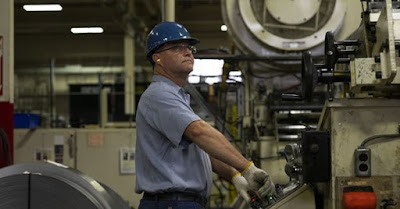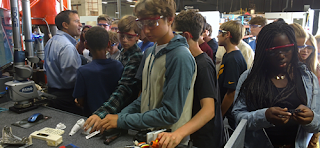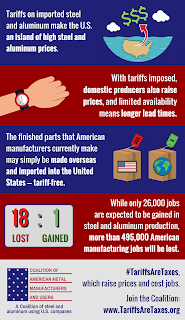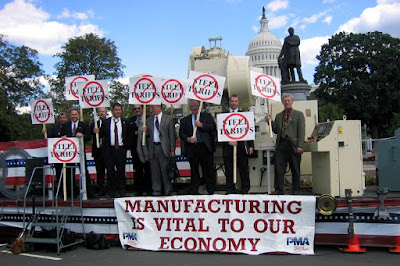Wall Street Journal Article Features the Impact of Tariffs on PMA Member

It’s been nearly nine months since the Trump Administration announced tariffs on steel and aluminum, and U.S. manufacturers are still struggling to remain competitive in a global market. In a Wall Street Journal article titled “Trump Tariffs Pit Auto Companies Against Each Other,” reporters Chester Dawson and Mike Colias spoke with PMA member Clips & Clamps Industries. The article states: This summer, Jeff Aznavorian, president of Clips & Clamps Industries, a small Detroit-area parts maker with about 57 employees, sent one-page letters to about 15 customers proposing a cost-sharing arrangement for future contracts. Clips & Clamps was on pace to turn a profit this year, but rising materials costs have wiped out its margin. Two customers agreed. A few politely declined. One buyer from Canada wrote back, expressing sympathy. “They basically said: ‘I’m sorry your government is doing this to you, but what do you expect me to do about it?’” Mr. Aznavorian said. The...









